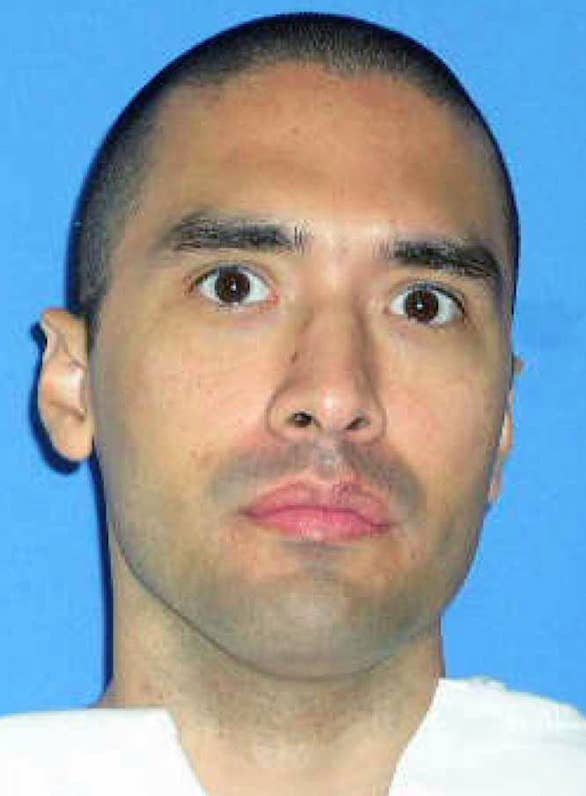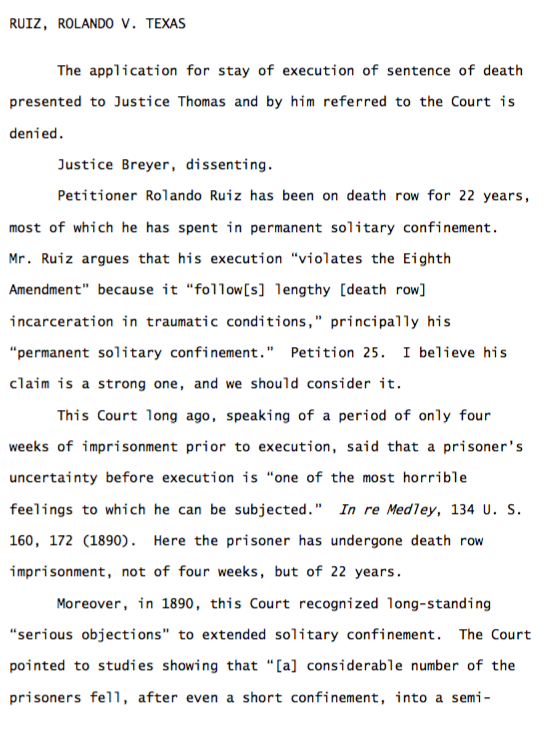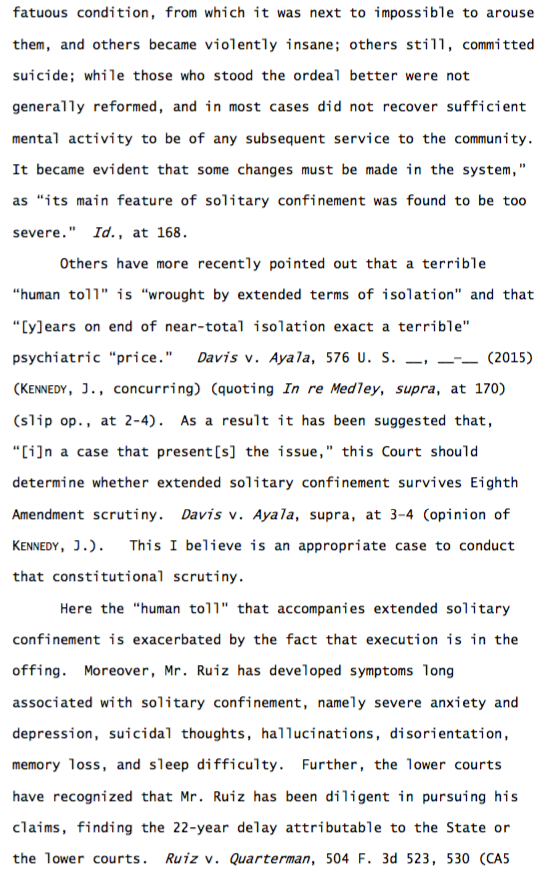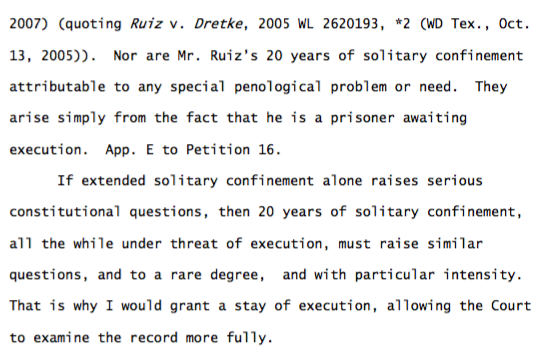WASHINGTON — The US Supreme Court did not stop the state of Texas from executing Rolando Ruiz for the 1992 murder of Theresa Rodriguez, part of a murder-for-hire scheme in which Ruiz was the killer.

The execution did not, however, begin just after 6 p.m. Central Time, as Texas had planned. It wasn't until about 10 p.m. Central Time that the Supreme Court issued its decisions denying Ruiz's requests for a stay of execution.
Ruiz, the Associated Press reported, was declared dead at 11:06 p.m. Central Time.
Although three requests were lodged with the Supreme Court by Ruiz's lawyers asking for a stay of execution, only one prompted any affirmative response from any justices.
In one petition — referred to as a Lackey claim, based on a 1995 Supreme Court case of that name — Ruiz argued that the Eighth Amendment should be read to bar his execution as cruel and unusual punishment.
"At this point, a quarter-century has elapsed since Mr. Ruiz committed a contract murder in 1992, two days after he turned twenty years old," Ruiz's lawyers wrote. "Mr. Ruiz has lived for over two decades under a death sentence, spent almost twenty years in solitary confinement, received two eleventh-hour stays of execution, and has received four different execution dates."
The Supreme Court denied the request to halt Ruiz's execution on those grounds, but Justice Stephen Breyer — reiterating a point he has made previously — dissented.
"Mr. Ruiz argues that his execution 'violates the Eighth Amendment' because it 'follow[s] lengthy [death row] incarceration in traumatic conditions,' principally his 'permanent solitary confinement," Breyer wrote. "I believe his claim is a strong one, and we should consider it."
Notably, Breyer drew out Ruiz's discussion of solitary confinement and its effects, highlighting the fact that it was Justice Anthony Kennedy who in 2015 questioned solitary confinement — and had urged the justices to take up a case that presented the issue.
"This I believe is an appropriate case to conduct that constitutional scrutiny," Breyer wrote of Ruiz's case. "If extended solitary confinement alone raises serious constitutional questions, then 20 years of solitary confinement, all the while under threat of execution, must raise similar questions, and to a rare degree, and with particular intensity. That is why I would grant a stay of execution, allowing the Court to examine the record more fully."



